Publications
-
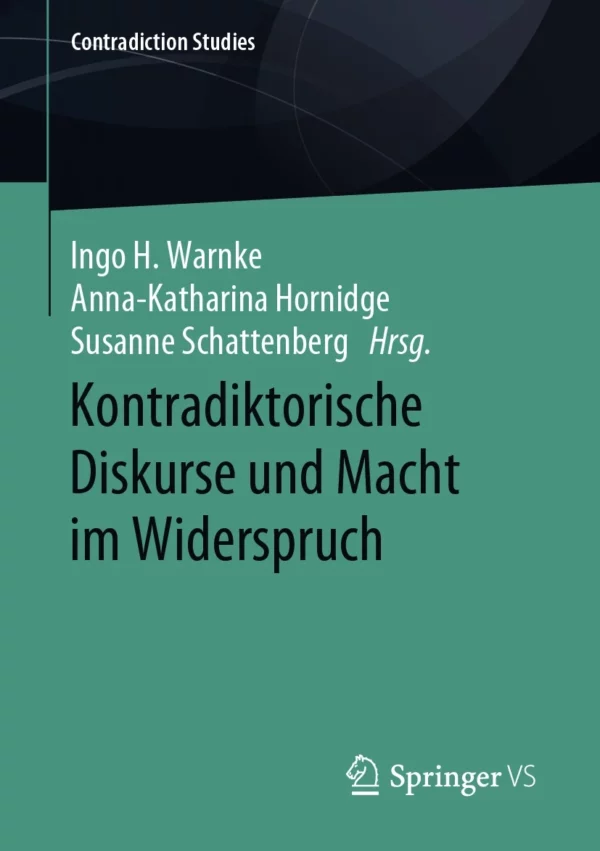 Kontradiktorische Diskurse und Macht im Widerspruch
Kontradiktorische Diskurse und Macht im WiderspruchDer Band behandelt in interdisziplinärer Perspektive Widerspruch unter anderem als einen konzeptionellen Anker von Diskursanalyse und -theorie. Widerspruch ist eine Figur der Ordnung von Wissen und damit Ausdruck von Machtverhältnissen. Akteur*innen, die Widersprüche identifizieren und als solche erst wahrnehmbar machen, sind ebenso in Dynamiken der Widerspruchsdeklaration verwoben wie das, was in einer Zeit als widersprüchlich bestimmt und bezeichnet wird. Die performative Dimension von Widerspruch unter Einschluss des Widersprechens verweist auf historische Normalitätsproduktionen und soziale Hierarchien, in denen das Widersprüchliche stets als Anlass zu seiner Auflösung verstanden wird.
-
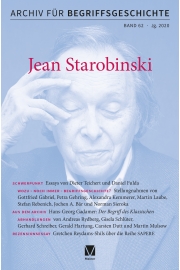 Begriffsgeschichte und Einzelwissenschaften
Begriffsgeschichte und EinzelwissenschaftenIn Carsten Dutt, Hubertus Busche & Michael Erler (Hrsg.) Schwerpunkt: Jean Starobinski (Archiv für Begriffsgeschichte Band 62 (Jg. 2020)). Hamburg: Felix Meiner Verlag. ISBN: 978-3-7873-3946-4
-
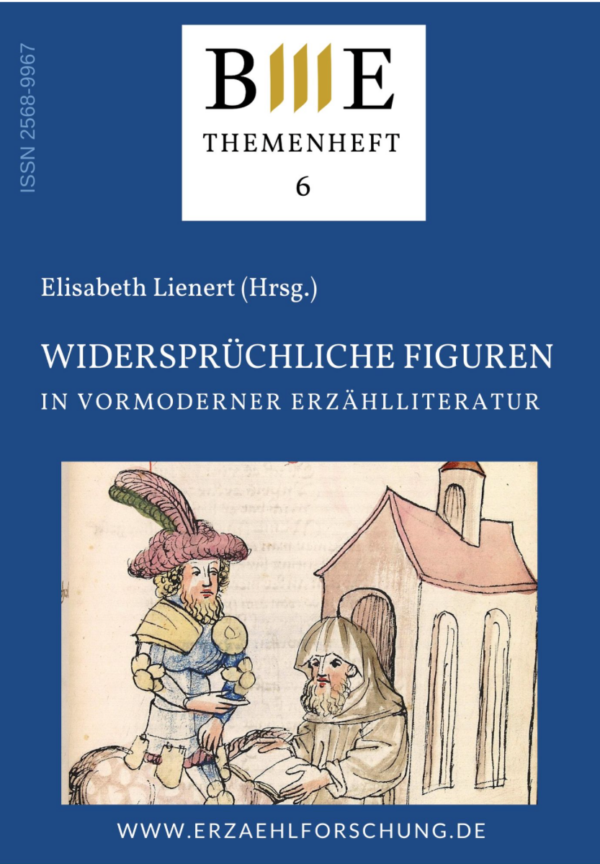 Widersprüchliche Figuren in vormoderner Erzählliteratur
Widersprüchliche Figuren in vormoderner ErzählliteraturContradictory characters are characters whose internal characterization in the text is contradictory or who are designed in and as a contradiction to discourses and traditions external to the text. The volume contains case studies from Virgil to the early New High German prose novel and the modern reception of the Nibelungen, combined with methodological considerations in the field of tension between character narratology, dialog research, historical anthropology and discourse analysis. The peculiarities of medieval-early modern narrative (above all the trans-textuality of many characters and their connection to plot or script) become just as clear as the necessity of reflecting on epochal clichés. The contributions invite us to think further about contradiction as a category of character narratology.
-
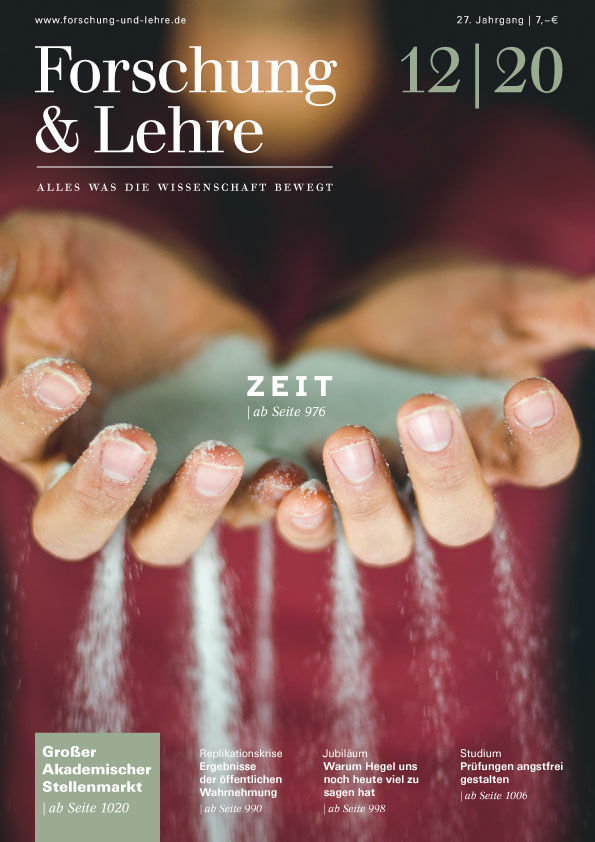 Die Zeit in ihrer Vielfalt denken. Anmerkungen aus philosophischer Perspektive
Die Zeit in ihrer Vielfalt denken. Anmerkungen aus philosophischer PerspektiveThe aim of this paper is to sketch an approach for integrating the historiography of the sciences and of philosophy. More precisely, the paper suggests a method for investigating interactions within transdisciplinary constellations of researchers working in philosophy and in the exact sciences. I start off by introducing specific notions of analogy, variation, and conceptual space which provide the main ingredients of this method. The notion of a conceptual space, as well as other characteristics of the present approach, are adaptations from so-called constellation research. Originally, constellation research was developed for the historiography of philosophy – especially in the context of the origins of German idealism. However, as I will argue in the second half of the paper, it is adaptable to the historiography of science, especially of the exact sciences. To support this claim and to illustrate the integrative power of the present approach, I will (i) compare the notions of a constellation and a conceptual space with Ludwik Fleck’s notions of a »thought collective« and a »style of thought«, (ii) critically evaluate the distinction between contexts of discovery and of justification in a historiographical context, and (iii) relate the notions of analogy and variation, as introduced in the first part of the paper, to current debates about what is sometimes called »invariantism« in the philosophy of science.
-
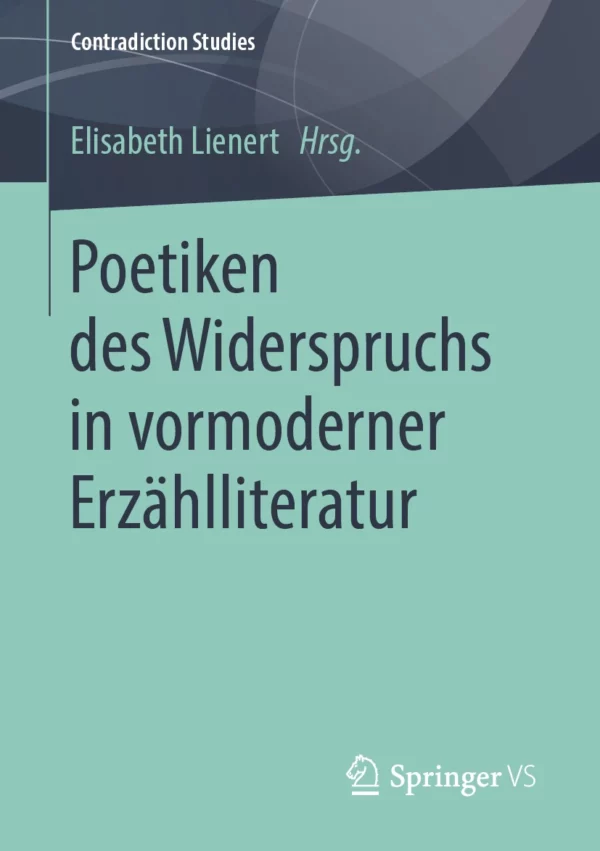 Poetiken des Widerspruchs in vormoderner Erzählliteratur
Poetiken des Widerspruchs in vormoderner ErzählliteraturDieser Band enthält grundsätzliche Überlegungen und textbezogene Fallstudien zu poetologischen Potenzialen von Widersprüchen und Verwandtem in deutschen und europäischen Erzähltexten vom 12. bis zum 17. Jahrhundert. Untersucht werden Akte der Widerrede und Phänomene der Unvereinbarkeit, widersprüchliche Konzeptualisierungen und narratologische Brüche, epistemologische Bedingungen der Wahrnehmung von Widersprüchlichkeit, Aspekte einer Poetologie des Widerspruchs als Mittel der Sinnkomplexion.
-
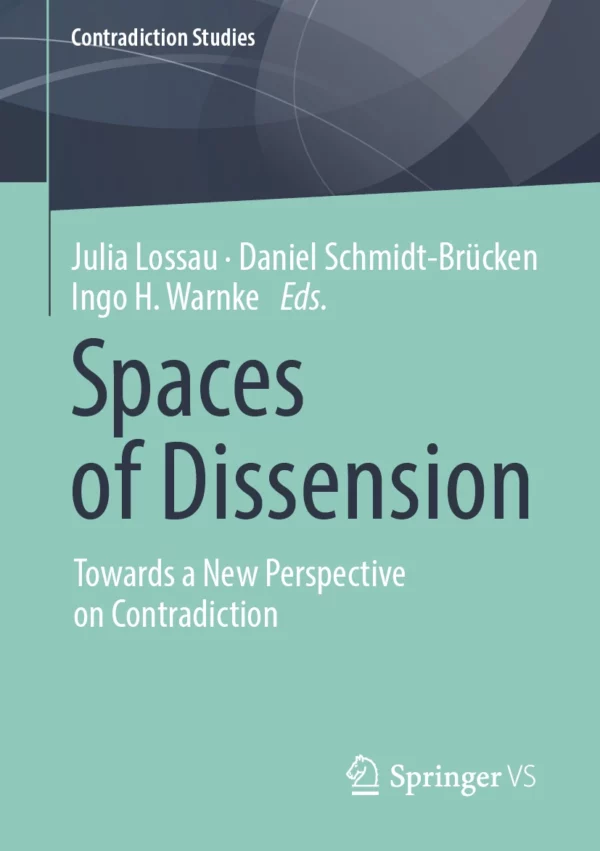 Spaces of Dissension
Spaces of DissensionThis volume focusses on contradiction as a key concept in the Humanities and Social Sciences. By bringing together theoretical and empirical contributions from a broad disciplinary spectrum, the volume advances research in contradiction and on contradictory phenomena, laying the foundations for a new interdisciplinary field of research: Contradiction Studies. Dealing with linguistic phenomena, urban geographies, business economy, literary writing practices, theory of the social sciences, and language education, the contributions show that contradiction, rather than being a logical exemption in the Aristotelian sense, provides a valuable approach to many fields of socially, culturally, and historically relevant fields of research.
-
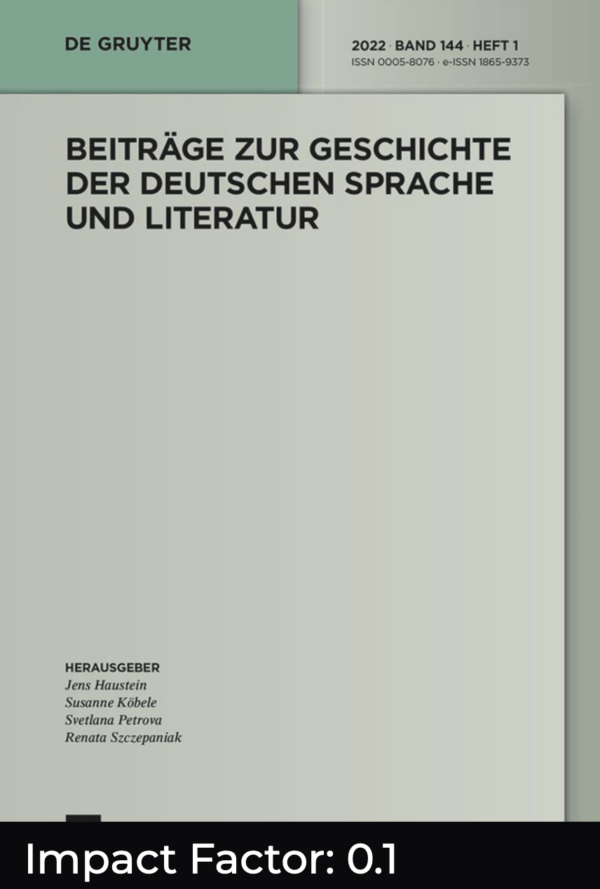 Widersprüche in heldenepischem Erzählen
Widersprüche in heldenepischem ErzählenThis article (re-)examines (marked) inconsistencies and incompatibilities in Middle High German heroic epic. Those contradictions may result from oral tradition, from the difficulties of transfering oral narratives into literacy, from the conditions of performing from memory, or from traditional narrative regularities of the genre. Frequently, they are striking side effects of a type of narration which is paradigmatic instead of syntagmatic, elliptic and aggregative, scenic and final, and therefore highly tolerant against contradictions of any kind. Contradictions and inconsistencies are (consciously or unconsciously) used (and imitated) as one of the constitutive stylistic features of heroic epic. In some cases, moreover, contradictions and inconsistencies are obviously part of an intentional poetics of contradiction ostentatiously accumulating and exhibiting different layers of knowledge and meaning. The textual strategies of heroic epic, in some respect perhaps of premodern narration in general, tend to favour discrepancies, contrasts, and contradiction instead of nuances, compromises, and smooth transitions.
-
 Knowledges and Contradictions in Premodern Narratives.
Knowledges and Contradictions in Premodern Narratives.Contradiction is not just a (post-)modern phenomenon. In premodern narratives, conflicting concepts and logical inconsistencies are omnipresent. This paper focuses on contradictions interdependent with knowledge: Traditional narratives may aggregate different versions of matters rooted in collective memory (heroic epic) or authoritative sources (romances of antiquity), sometimes without concern for the consistency of their own story. Narrative texts may use contradiction for didactic purposes. Contradictions may result in both construction and deconstruction of knowledge. Strategies of irritation and ambiguity involve recipients in the production of meaning. Thus, the concept of contradiction is apt to redefine premodern narrative strategies.
-
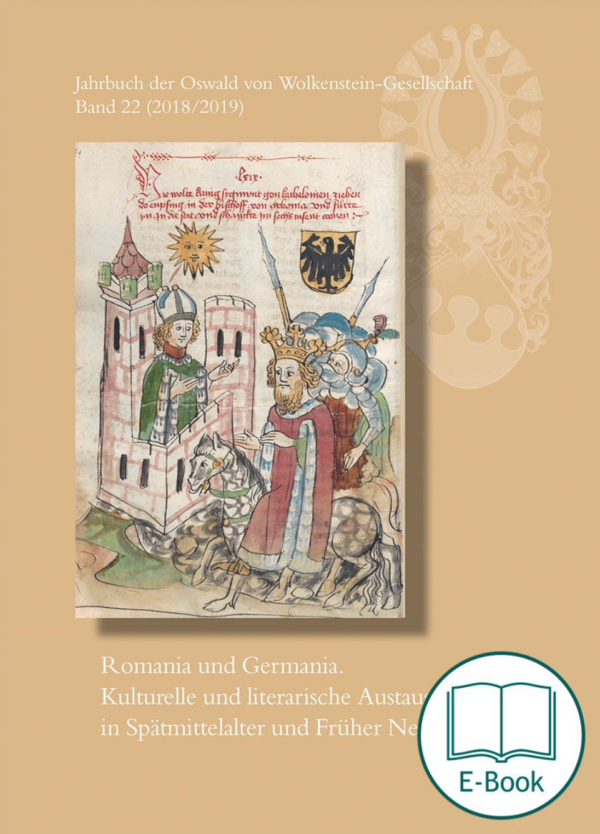 Erzähllogiken transnational. Narratologische Aspekte der Rezeption französischer Heldenepik in frühneuhochdeutscher ProsaErzähllogiken transnational
Erzähllogiken transnational. Narratologische Aspekte der Rezeption französischer Heldenepik in frühneuhochdeutscher ProsaErzähllogiken transnationalYearbook of the Oswald von Wolkenstein-Gesellschaft, Band 22 (2018/2019): Romania und Germania. Kulturelle und literarische Austauschprozesse in Spätmittelalter und Früher Neuzeit. DOI: 10.29091/9783954906765/007
-
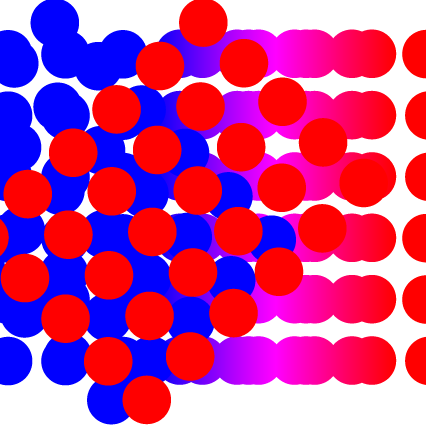 “Wildekeit” und Widerspruch. Poetik der Diskrepanz bei Konrad von Würzburg
“Wildekeit” und Widerspruch. Poetik der Diskrepanz bei Konrad von WürzburgIn Schröder, Werner, Susanne Köbele, Klaus Ridder, Eckart Conrad Lutz, Ricarda Bauschke, Franz-Josef Holznagel, Julia Frick & Veronika Hassel. 1970. Wolfram-Studien XXV): 323–341. Berlin: E. Schmidt. http://opac.regesta-imperii.de/id/2489370
-
 Antagonisten im höfischen Roman? Eine Skizze
Antagonisten im höfischen Roman? Eine SkizzeThis contribution (re-)examines the description and multiple functions of selected antagonists in courtly romance around 1200. Excepting romance of antiquity, one rarely encounters equal opponents who represent a contrary system of values and continue to take consequent action against the hero until the end. The texts are centered on their protagonists, lacking an equal narrative counterpart. Hence, the applicability of the concept ‘antagonist’ might be called into question for Arthurian, grail, and Tristan romance.
-
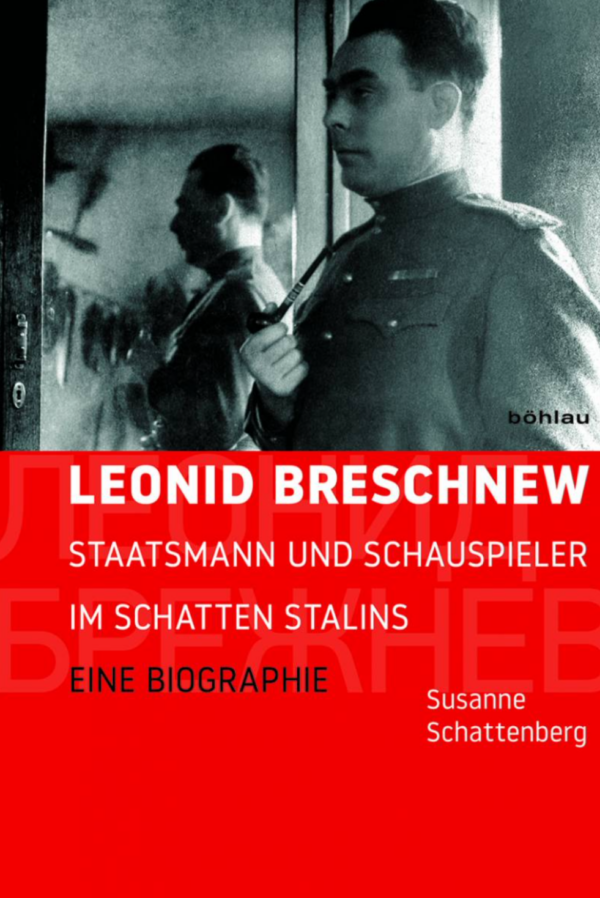 Leonid Breschnew. Staatsmann und Schauspieler im Schatten Stalins. Eine Biographie
Leonid Breschnew. Staatsmann und Schauspieler im Schatten Stalins. Eine BiographieLeonid Brezhnev was Chairman of the CPSU from 1964 to 1982 and shaped the development of the Soviet Union for almost two decades. Contrary to what had long been claimed in the West, Brezhnev was not a hardliner or restalinizer, but had himself suffered under Stalin and seen so much suffering that he declared prosperity for all to be the general line of the party. The horrors he had experienced in the Second World War led him to seek a balance with the West. Brezhnev mimicked the Western statesman and was accepted by his partners as one of their own. But when Georges Pompidou died in 1974 and Willy Brandt and Richard Nixon resigned, Brezhnev found himself faced with the ruins of his policy of détente. For, as no one in the West suspected, there was no change of policy in the Kremlin. Stress and insomnia led Brezhnev into a pill addiction that further ruined his peace efforts: the invasion of Afghanistan by Soviet troops in 1979 was decided by a Politburo troika without him.
A man in his time: Based on numerous previously inaccessible sources, Eastern European historian Susanne Schattenberg presents the first academic biography of Leonid Brezhnev on the 35th anniversary of his death in November 2017.
-
 Antagonismus und Antagonismen. Hegemonietheoretische Aufklärung
Antagonismus und Antagonismen. Hegemonietheoretische AufklärungIn Oliver Marchart (eds.) Ordnungen des Politischen. Einsätze und Wirkungen der Hegemonietheorie Ernesto Laclaus, 81–102. Wiesbaden: Springer VS. printISBN: 978-3-6581-7258-9 ebook ISBN: 9783-6581-7259-6
-
 Discourse Analysis as Critique
Discourse Analysis as CritiqueThis paper intervenes in the discussion about the relationship between discourse analysis and critique. It argues that this relationship can be understood either as an external or as an integrated relationship. In an external relationship, there is first social criticism that is then braced by discourse analysis, that is, the latter aims at giving empirical credence to the critique. However, such an external relationship cannot give us any insight concerning the critical potential that is specific to discourse analysis, precisely because in this case critique exists before and independent of discourse analysis. If, however, critique emanates from discourse analysis itself, we would speak of an integrated relationship and would no longer speak of discourse analysis and critique, but of discourse analysis as critique. It is argued that such an integrated relationship becomes visible once we think of discourse analysis as being itself a discursive formation and ask what unsettling effects this formation has on research objects, on subject formations and on the academic production context in which they are conducted.
-
 Widerspruch als Erzählprinzip in der Vormoderne? Eine Projektskizze
Widerspruch als Erzählprinzip in der Vormoderne? Eine ProjektskizzeIn premodern narratives contradictions are omnipresent – conflicting concepts, logical inconsistencies, acts of objection. In a narratological perspective ›contradiction‹ – conflicts of incompatible knowledges and narrative patterns; inconsistencies in or between speech (by narrator or characters) and action; contradictory or inconsistent information and motivation – is apt to subvert, complicate, or enrich the textual production of meaning. The project ›Contradiction as a Narrative Principle in Premodern Narrative‹ (University of Bremen) explores different types of contradictions in medieval epic and romance.
-
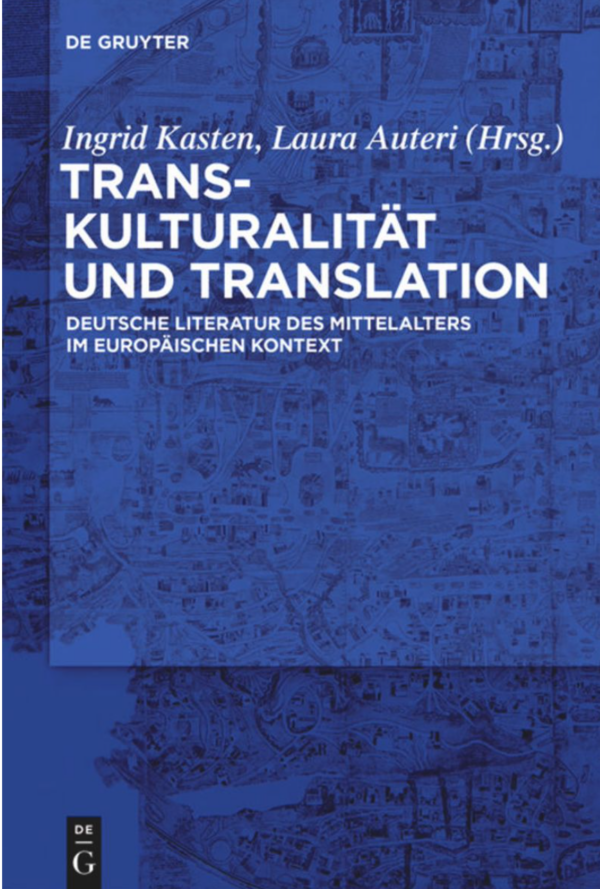 Erzählen in transkultureller Perspektive. Zur Poetologie der Widersprüche in der europäischen Heldendichtung
Erzählen in transkultureller Perspektive. Zur Poetologie der Widersprüche in der europäischen HeldendichtungIn Kasten, Ingrid & Laura Auteri (eds.) Transkulturalität und Translation. Deutsche Literatur des Mittelalters im europäischen Kontext, 243–252. Berlin: De Gruyter. DOI: 10.1515/9783110556438-017
-
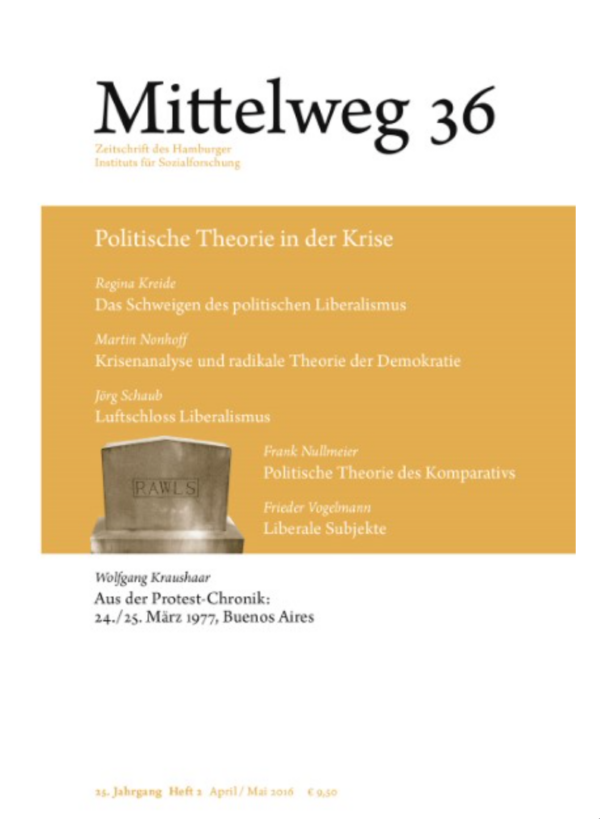 Politische Theorie in der Krise
Politische Theorie in der KriseMartin Nonhoff/Frieder Vogelmann: Editorial (Seite 3); Regina Kreide: Das Schweigen des politischen Liberalismus (Seite 5); Martin Nonhoff: Krisenanalyse und radikale Theorie der Demokratie (Seite 21); Jörg Schaub: Luftschloss Liberalismus. Warum das Denken in Krisenzeiten keinen Halt findet (Seite 38); Frank Nullmeier: Politische Theorie des Komparativs. Soziale Vergleiche und gerechte Gesellschaft (Seite 56); Frieder Vogelmann: Liberale Subjekte Eine affirmative Streitschrift (Seite 74); Wolfgang Kraushaar: Aus der Protest-Chronik: 24./25. März 1977, Buenos Aires (Seite 91)
-
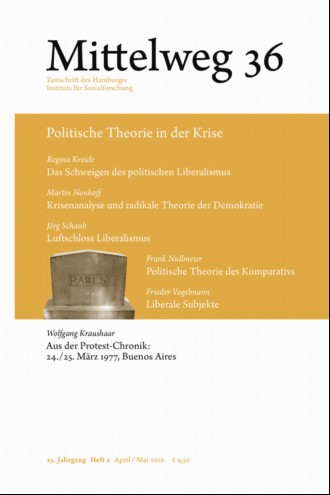 Krisenanalyse und radikale Theorie der Demokratie.
Krisenanalyse und radikale Theorie der Demokratie.Mittelweg 36. Zeitschrift des Hamburger Instituts für Sozialforschung 2(2016) ISBN: 978-3-86854-736-8
-
 „Sascha, ich würde Dir gern glauben, aber versteh auch Du mich …“. Breschnew, Dubček und die Frage von Kadern und Vertrauen im Konflikt um den Prager Frühling 1968
„Sascha, ich würde Dir gern glauben, aber versteh auch Du mich …“. Breschnew, Dubček und die Frage von Kadern und Vertrauen im Konflikt um den Prager Frühling 1968This article focuses on the question, which kind of diplomacy we have to deal with within the Warsaw pact states. Taking the invasion in Czechoslovakia in 1968 as an example, three theses are discussed: (1) Brezhnev transferred his inner-party concept of „trust in cadres“ and his „scenario of power“ based on trust to foreign politics and treated Dubček as a client whom he addressed in a patrimonial and familiar way. (2) He lost faith in Dubček when the latter established a new democratic discourse denying the central power of the party. (3) The diplomatic language within the Warsaw pact states referred more to socialist common values and party discipline than to the language and setting of international meetings with third party states.
-
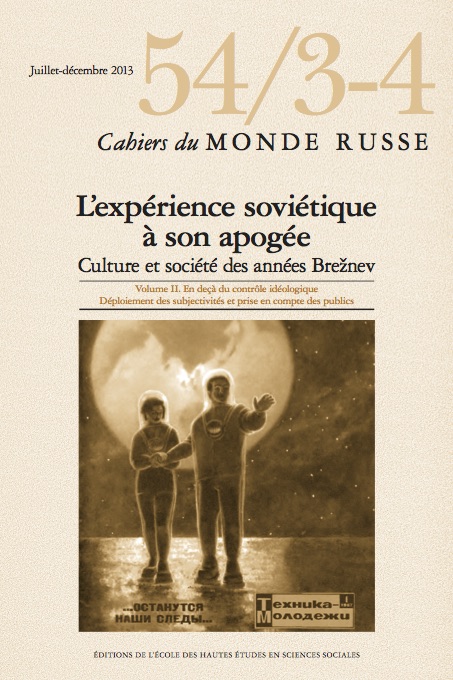 Les frontières du dicible. Du dialogue au silence: Les relations d’Andrej Saharov avec Hrušcev et Brežnev.
Les frontières du dicible. Du dialogue au silence: Les relations d’Andrej Saharov avec Hrušcev et Brežnev.This article describes the historical context that was decisive in Saharov’s commitment to warning party leaders of the dangers of the H-bomb and calling on them to respect human rights. He also attempts to explore the different ways in which Hruščev and Brežnev approached Saharov’s criticisms. Not only does he examine the three stages of the KGB model – educate, warn and only finally arrest renegades – he also sheds light on Andropov’s repeated appeals to Brežnev to speak with Saharov. Although Saharov, too, was keen to talk to Brežnev, the meeting between the two men never took place. In the end, it was against the backdrop of the Cold War that the Politbjuro decided on the best time to get rid of Saharov, doing as little damage as possible to the prestige of the Soviet Union, and thus re-establishing the limits of the dictable.